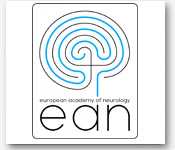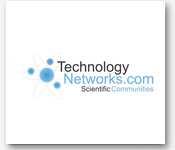Neuroimmunology -2015 on behalf of its organizing Committee welcomes all the researchers, neurologists, scientists, industrialists, delegates and students to participate at this international event to discuss the intricate subjects related to the emerging field of Neuroimmunology. The International conference on Neuroimmunology & Therapeutics, which focusses on “Contemporary explorations in Neuroimmunology to treat human diseases” is scheduled to be held during July 20-22, 2015 in San Francisco, California, USA.
"Abstract Submission Deadline June 30, Speaker Slots & Exhibition are Available"
"Get 20% Abatement on Speaker registrations (only registrations on/before June 30) contact [email protected]"
Payment gateway for discounted payments: http://www.conferenceseries.com/onlinepayment/
Note: Select option "Others" to make the discounted payments from above link
International Workshop : Immunopsychiatry
Organizer :Hanjing Emily Wu,University of Texas Health, USA
Special Session 1 : “Brainstem hypothesis for autism” Organized at Neuroimmunology 2015.
Organizer : Woody R McGinnis, Director ,Brainstem Studies Autism Research Institute, USA
Special Session 2 : Neuropharmacology and Therapeutics
Organizer :E Alfonso Romero-Sandoval,Presbyterian College School of Pharmacy, USA
Keynote Speakers:
Chi-Chao Chan, National Institutes of Health, USA
Woody R McGinnis, Brainstem Studies Autism Research Institute, USA
Lynn Pulliam, University of California, USA
Sulie Chang, Seaton Hall University , USA
Ljudmila Stojanovich, University Hospital Bezanijska Kosa, Serbia
The scientific sessions of Neuroimmunology-2015 will focus on the
current research areas includes neuroimmunological diseases, its wide therapeutic aspects including the role of stem cells, Biomarkers, immunoglobulin therapy along with psychiatric and sleep disorders which are most common outcomes of neuroimmunological imbalance.
Neuroimmunology-2015 summons participants from paramount universities, research institutions and diagnostic companies to exhibit their research expertise on all aspects of this rapidly expanding field.
For more details on the relevant conferences, please click here
For more details : http://www.conferenceseries.com/neuroimmunology-neuro-degeneration-neuro-inflammation-neuropathology.php
Fo regular updates #neuroimmneconf
Neuroinflammation
Neuroinflammation as the word defines is the inflammation of the nervous tissue. Neuroinflammation may be due to traumatic brain injury, infection, autoimmunity or toxic metabolites. The innate immune cells called microglia present in the central nervous system gets activated because of this. The activated microglia produces neurotoxic mediators. Microglia changes its cells morphology in response to neural injury. Acute inflammation occurs because of the activation of microglia. It occurs because of some neural injury after which the activated microglia migrates to the injured site and engulfs the debris and dead cells. Chronic inflammation causes inflammation of brain tissues and degradation of blood brain barrier. In this the neurodestructive effects expand and worsen the condition or disease. In chronic case the neurotoxic mediators remain activated for the longer time and increase in mediators lead to neuronal death. The cause of neuroinflammation is related to oxidative damage. Neuroinflammation causes neurodegenerative diseases like Parkinson disease and Alzheimer disease.
Neurodegenerative Diseases
Neurodegenerative diseases occur when nervous system cells (neurons) in the brain and spinal cord begin to deteriorate. Changes in these cells cause them to function abnormally and eventually result in the cells' demise. As neurons deteriorate, an individual may first experience relatively mild symptoms — problems with coordination or remembering names. But as huge numbers of neurons die, symptoms progressively worsen. In some cases, patients lose the ability to walk independently, think clearly, or generally function in the world. Ultimately, many of these diseases are fatal. Neurodegenerative diseases are incurable and debilitating conditions that result in progressive degeneration and or death of nerve cells.
Neuroimmunology
Neuroimmunology, the study of the interaction between our central nervous system (the brain and spinal cord) and our immune system, melds these two disciplines. Much of the recent research in this area has focused on the role of immune cells and immune mediators in the initiation and progression of specific neurological diseases, such as multiple sclerosis and Alzheimer's disease. The nervous and immune systems are in constant dialogue, but details of how these two essential systems are integrated and functionally cooperate at the molecular level are only now being revealed.
Neurovirology
Neurovirology is an explicit study of viral infections of the nervous system. It is an interdisciplinary field which represents a melding of clinical neuroscience, virology, immunology, and molecular biology. The main focus of the field is to study viruses capable of infecting the nervous system. Viral infections of the central nervous system (CNS) differ from infections of other organs in that the CNS is somewhat isolated from the periphery by the blood brain barrier and this results in different host responses to infection. The interest in researching viruses that infect the nervous system has increased dramatically over the past 40 years.
Neurological disorders
Neurological disorders are diseases of the brain, spine and the nerves that connect them. There are many recognized neurological disorders, some relatively common, but many rare, such as frontotemporal dementia. The specific causes of neurological problems vary, which include diseases caused by faulty genes, such as Huntington's disease and muscular dystrophy, Problems with the way the nervous system develops, such as spina bifida. Degenerative diseases, where nerve cells are damaged or die, such as Parkinson's disease and Alzheimer's disease. Diseases of the blood vessels that supply the brain, such as stroke. Injuries to the spinal cord and brain. Seizure disorders, such as epilepsy. Cancer, such as brain tumors and infections, such as meningitis.
Neurological diseases/infections
The brain is a direct target for certain infections, and may also be indirectly affected by systemic bacterial, viral, or parasitic infections and their treatment. Certain pathogens, such as the human immunodeficiency virus (HIV), syphilis, West Nile Virus, Borrelia burgdorferi (resulting in Lyme disease), and other viral brain infections occur in otherwise healthy persons. Viral and immune mediated disorders of the nervous system are among the most challenging neurological disorders. The most common neuroimmune diseases/infections are Brain abscess encephalitis, Guillain-Barré syndrome, Meningitis, Reye syndrome and multiple sclerosis. Other infections, such as fungal infections or rarer parasites tend to most commonly affect people with reduced immune systems from cancer, chemotherapy, immunosuppressive therapy, or transplantation.













